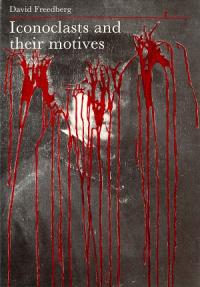Iconclasts and their motives: The Second Horst Gerson Lecture, held on October 7, 1983
Synopsis
The Second Gerson Lecture, held in memory of Horst Gerson (1907-1978) in the Aula of the University of Groningen on October 7, 1983.
Iconoclasm - the breaking of images, the purposeful destruction of art - engages complicated feelings. Many people experience powerful emotions in the presence of work of art, emotions which are usually channelled along safe and rewarding lines. To hear of a violent attack on such an object, or to see the devastating results, shocks and horrifies the art lover. For that reason, the subject is usually avoided in art-historical discourse.
David Freedberg, professor of art history at Barnard College, Colombia University, is the author of the fundamental study Iconoclasm and painting in the revolt of the Netherlands (1973), and of several distinguished articles on historical iconoclasm. In those works, he dealt with iconoclasm as an aspect of religious or political upheaval. In Iconoclasts and their motives, he turns to the much more difficult subject of individual acts of iconoclasm performed in our century. He examines the psychology of the iconoclast and the public reaction to acts of iconoclasm, reaching conclusions which help us to understand why iconoclasts destroy art - and why other cherish it.
Downloads

Downloads
Published
Series
Categories
License

This work is licensed under a Creative Commons Attribution-NonCommercial-NoDerivatives 4.0 International License.



